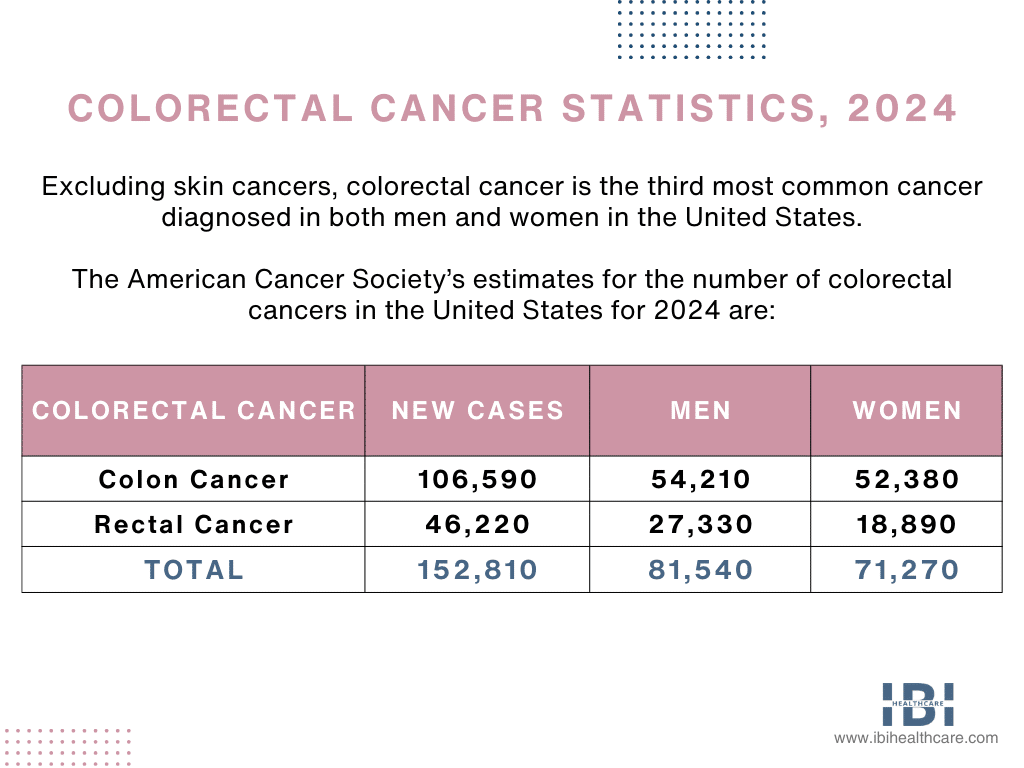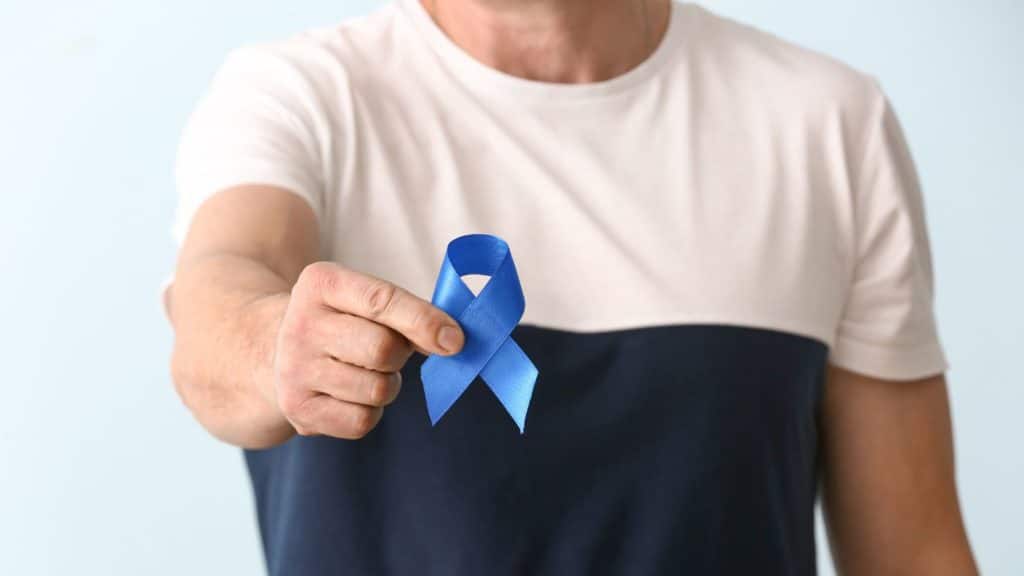Make Colonoscopy Screening a Priority. When we are young and seemingly healthy, routine medical screenings are normally not on our radar. There are many conditions that most of us think of as only affecting older people, such as colorectal cancer.
Medical professionals worldwide have seen increases in the rate of colon cancer in younger people and a decline in cases in older adults. This is due to the increase in awareness of the disease and more adults undergoing the recommended colonoscopy screenings for their age.
By catching precancerous polyps early, a colonoscopy can help prevent colorectal cancer. Plus, any signs of precancerous markers can be identified and eliminated. But what is the recommended age for a colonoscopy? What age should a woman get a colonoscopy? Should I get a colonoscopy at age 40? Today we are going to answer these questions and provide an overview of the importance of screening for colorectal cancer.
How common is Colorectal Cancer?
This disease is the third most common type of cancer diagnosed in the United States and worldwide (besides the many types of skin cancer). See the colorectal statistics chart for 2024.

Most of us think colorectal cancer is a condition that occurs in old men, but that is not true. The disease indeed affects more men than women, but you can see from the illustration above that the margin of difference is only around 13%.
Who is more at risk for Colon Cancer?
The older you get, the higher the risk for colorectal cancer, yet the rate among young adults has steadily increased, currently making it the fourth most commonly diagnosed cancer for those aged 30-39. Moreover, the risk factors are complex; age alone is not a determinant.
Experts do not have a clear understanding of the factors driving the increase in colon cancer among younger adults. Recognizing this disease, its risks, and that it has a better prognosis when caught early, young adults even in their 20s and 30s should familiarize themselves. Unfortunately, delayed treatment results in harsher procedures and less desirable outcomes.
What Factors Put a Person More at Risk For Colorectal Cancer?
With the increasing incidence of colon cancer in young adults, it is clear that there are more risk factors at work than just their age. In 2020 alone, in the U.S., approximately 12% of new colorectal cases occurred in patients under 50 years of age. (Approximately 18,000 cases) Here are some of the known risk factors for colorectal cancer:
- Obesity.
- Sedentary Lifestyle.
- Smoking/tobacco use.
- A history of colorectal cancer or polyps in your family.
- Your food choices and diet can put you at increased risk.
- Gender: Regardless of their age, men have a higher risk than women.
- If you have medical conditions such as Crohn’s disease or IBS (irritable bowel syndrome).
- Ethnicity: African Americans have a 20% higher risk of experiencing colorectal cancer, regardless of gender.
- If you have or have a family history of Lynch syndrome, Gardner’s syndrome, or FAP (Familial Adenomatous Polyposis).
What are some symptoms I should be aware of?
Since colorectal cancer can affect anyone, it is important to understand the symptoms that might signal this condition.
The two biggest symptoms of colorectal cancer are stools that are darker than normal or contain blood and rectal bleeding. Other conditions can cause these symptoms as well, but you should schedule an appointment with your doctor as soon as you can so the underlying cause can be determined. Other symptoms that are often subtle include:
- Overall fatigue.
- Unexplained weight loss.
- Pain or cramping in the abdomen.
- Changes in the texture of your stool or bowel habits (changes in color, frequency, and consistency).
If you have a family history or increased risk of colorectal cancer, make sure to mention any abnormal symptoms to your doctor. It is better to err on the side of caution. Even if you are not at high risk but are experiencing any of these general symptoms, it is still advisable to see your doctor and get checked out.
At 20, this patient sought out medical attention for rectal bleeding but was misdiagnosed twice. Only after he was in stage 3 of colon cancer did the true cause surface. This is yet another example of young people suffering from colorectal cancer.
If you are concerned about the symptoms you are experiencing, make an appointment with a gastroenterologist and not only your primary doctor.
At what age should you get a Colonoscopy?
It is important to understand that even if you feel great and are young, especially if any of these risk factors apply, you should take steps now to eliminate any that you can. Establish an immediate relationship with a gastrointestinal specialist so that they can determine the best age for your first colonoscopy and also monitor your health.
- Factors such as overall health determine screenings after 76; doctors then decide at their discretion.
- Begin screenings 10 years before the age of diagnosis of your parent or sibling with colorectal cancer, or arrange a colonoscopy at 40 – whichever comes first.
- The American Cancer Society recently reduced the recommended Colonoscopy Screening age from 50 to 45 for those without risk factors. Nevertheless, if you are healthy, repeat screenings every 10 years until 75 or your doctor advises otherwise.
What to expect when you get a Colonoscopy?
At the recommended screening age, dread may settle in — but the colonoscopy itself is not as bad as you might’ve heard. The worst part is the colon-clearing process the evening before.
While this part is certainly not fun, it sure does beat the alternative of being diagnosed with late-stage colorectal cancer.
Colorectal Cancer – Colonoscopy Process Overview
- Your doctor will give you instructions about changing some of your dietary habits up to a week before your procedure.
- Your doctor will provide you with instructions for performing the colon cleanse, which is an essential element for accurate results. Too, you may spend considerable time in the bathroom, especially as you take a laxative the night before to flush out your colon. Consequently, you may feel more comfortable setting up camp there.
- Once you arrive at the facility, your vital signs will be recorded. Changing into a medical gown, the gastroenterologist will ask questions to determine your colon’s cleanliness for examination.
- After lying down on your left side in the procedure room, you’ll receive an IV sedative to start drifting off; typically, patients don’t recall anything about the procedure afterward.
- Gastroenterologists carefully guide a thin, flexible device with a light and camera attached to your rectum and through your colon. Consequently, they remove any encountered polyps and, if anything suspicious appears, take a biopsy sample of the tissue.
- After the procedure, which typically lasts between 20 and 45 minutes, you will wake up in the recovery room. The doctor will then provide you with a brief overview of what they observed. If you’re clear, then you don’t need to see a doctor for the next ten years. However, if polyps or other tissue were taken then you will await and receive further instructions.
- After being released, you will need a ride since you’ll be groggy from the sedative. Gradually, you may experience bloating, cramping, or gas. Plus, minor bleeding from the rectum is normal and shouldn’t last long. We’ll provide instructions on complications and who to contact, if necessary.
Early Detection
Medical professionals can save your life by spotting colorectal cancer early. Firstly, early detection allows for the potential removal of cancerous cells or polyps, which can halt the progression of the disease. Secondly, it makes treatment options less severe and more effective. Lastly, it can relieve symptoms in more advanced cases.
Age for colonoscopy screening varies: transitions like age and diagnoses can indicate earlier screenings for some adults. Advanced cases of colon cancer can even diagnose younger adults. Do everything you can to stay healthy and live longer; your family deserves to have you around!
If you would like to find out if you are the right age for a colonoscopy. Learn more about our Advanced Endoscopy Center. Our medical team can answer your questions and address any concerns you may have. Contact us to conveniently schedule your colonoscopy screening at one of our two locations in Georgia or Florida.











